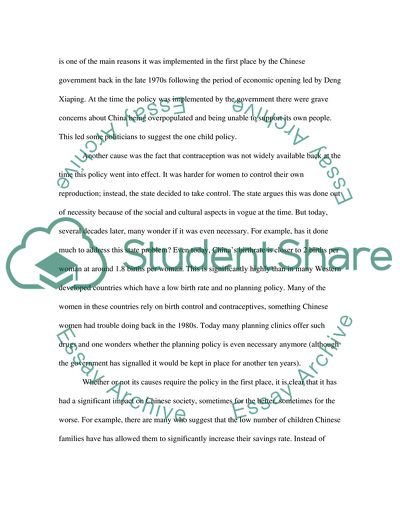Cite this document
(“Chinas One Child Policy Essay Example | Topics and Well Written Essays - 1250 words”, n.d.)
Chinas One Child Policy Essay Example | Topics and Well Written Essays - 1250 words. Retrieved from https://studentshare.org/social-science/1571085-please-analyze-a-current-controversy
Chinas One Child Policy Essay Example | Topics and Well Written Essays - 1250 words. Retrieved from https://studentshare.org/social-science/1571085-please-analyze-a-current-controversy
(Chinas One Child Policy Essay Example | Topics and Well Written Essays - 1250 Words)
Chinas One Child Policy Essay Example | Topics and Well Written Essays - 1250 Words. https://studentshare.org/social-science/1571085-please-analyze-a-current-controversy.
Chinas One Child Policy Essay Example | Topics and Well Written Essays - 1250 Words. https://studentshare.org/social-science/1571085-please-analyze-a-current-controversy.
“Chinas One Child Policy Essay Example | Topics and Well Written Essays - 1250 Words”, n.d. https://studentshare.org/social-science/1571085-please-analyze-a-current-controversy.


